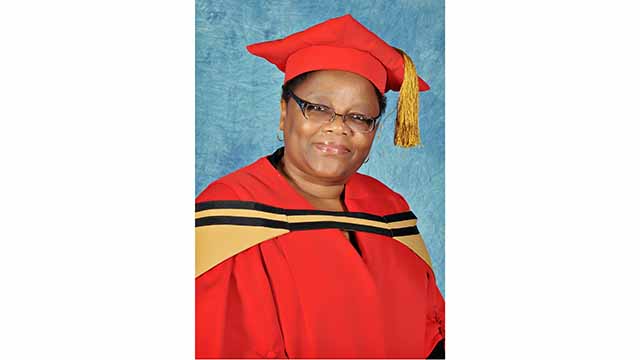
Dubbed the Compassionate scientist, Rhodes University’s Professor Nyokong has been raking in international and national the awards for her hard work and commitment to the advancement of health in Africa.
Last week National Laser Centre rental pool programme, which is part of the Council for Scientific and Industrial Research (CSIR), honoured her with two awards; on the number of students trained and the number of doctorates awarded in 2016/2017.
Prof Nyokong is currently a Distinguished Professor of Chemistry at Rhodes University, a holder of the DST-NRF Research Chair in Medicinal Chemistry and Nanotechnology, as well as director of the DST-Mintek Nanotechnology Innovation Centre focusing on sensors.
Seven doctoral students have graduated from the programme in the past two years, which is an African record. The students conducted groundbreaking research on the development of new medicine and wrote a significant number of papers, a requirement of the programme.
In 2003, Prof Nyokong received a call urging her to apply for the use of the newly acquired 20-year-old light amplification by stimulated emission of radiation (Lasers) from the National Laser Centre. By morning, she had finished the proposal and her application was successful.
“The Lasers are meant to be a loan to the institution for use by my students, mostly, others Departments and social organisations. We currently have someone from Kuwait who is here for research purposes. The awards are an acknowledgement of the work done by PhD students. Every year I have to compile a report for the CSIR to indicate how we are using the lasers for social development,” she said.
As the Head of the programme, Prof Nyokong admits that a lot of hard work goes into ensuring that Rhodes keeps these lasers for a long time, as they are a useful technology in chemistry advancement for the greater society. She gets a lot of request for the development of products from other researchers such as those in marine natural product research and the South African Defense Force.
“We develop among other things, drugs for cancer treatment, photodynamic laser treatment, and lasers allow us to test how stable they are.”
The National Laser Centre heeds the need to address the continents’ development challenges and supports higher-education institutions and other research and technology organisations in photonics science and technology through its portfolio of national programmes.
Prof Nyokong emphasized the need for higher education institutions to not be isolated. “Everything we have and receive is for the use of their entire community. We cannot be protectionists about resources and infrastructure, this is government money, we have to help other researchers for the better good of the country, and industry,” she said.
“I believe in myself, I believe in Rhodes University and I believe that Africa can do a lot with what we have if we have accountable leaders working towards a common vision; development through research,” she concluded.
As one of South Africa’s top scientists in the fields of chemistry and nanotechnology, she holds the National Research Foundation‘s (NRF’s) lifetime achievement award, the latest in a long list of accolades earned over her illustrious academic career.
Prof Nyokong has dedicated her career, both locally and internationally, to not only advancing the frontiers of scientific research, but she also serves as a role model for women and previously disadvantaged people in science.
